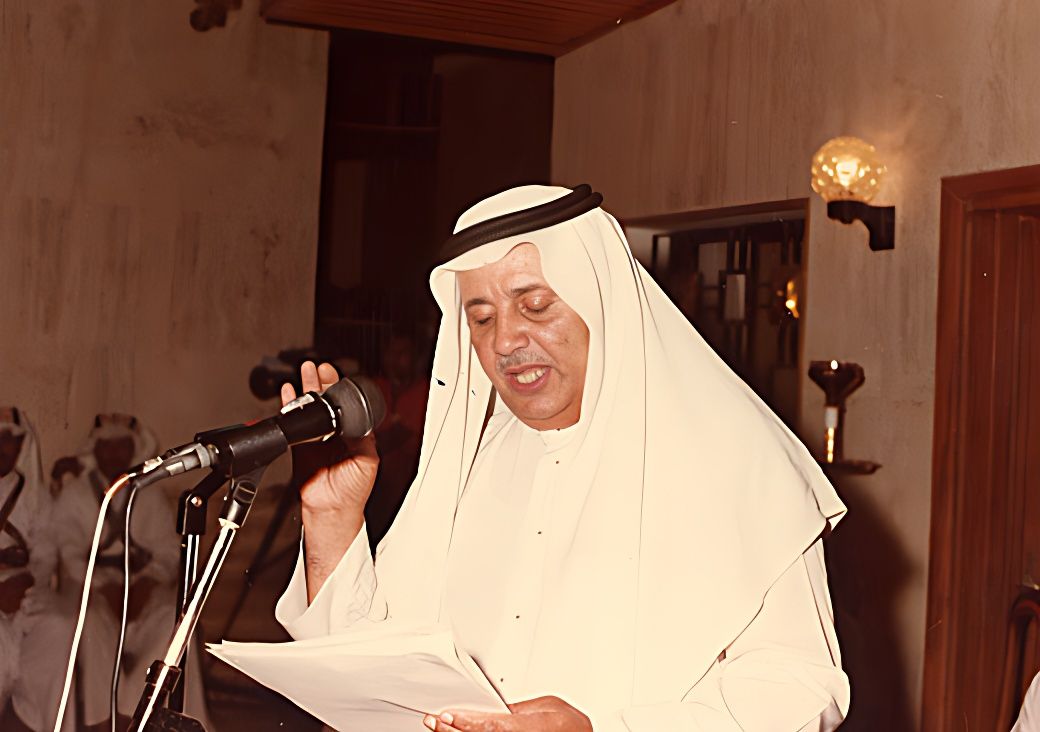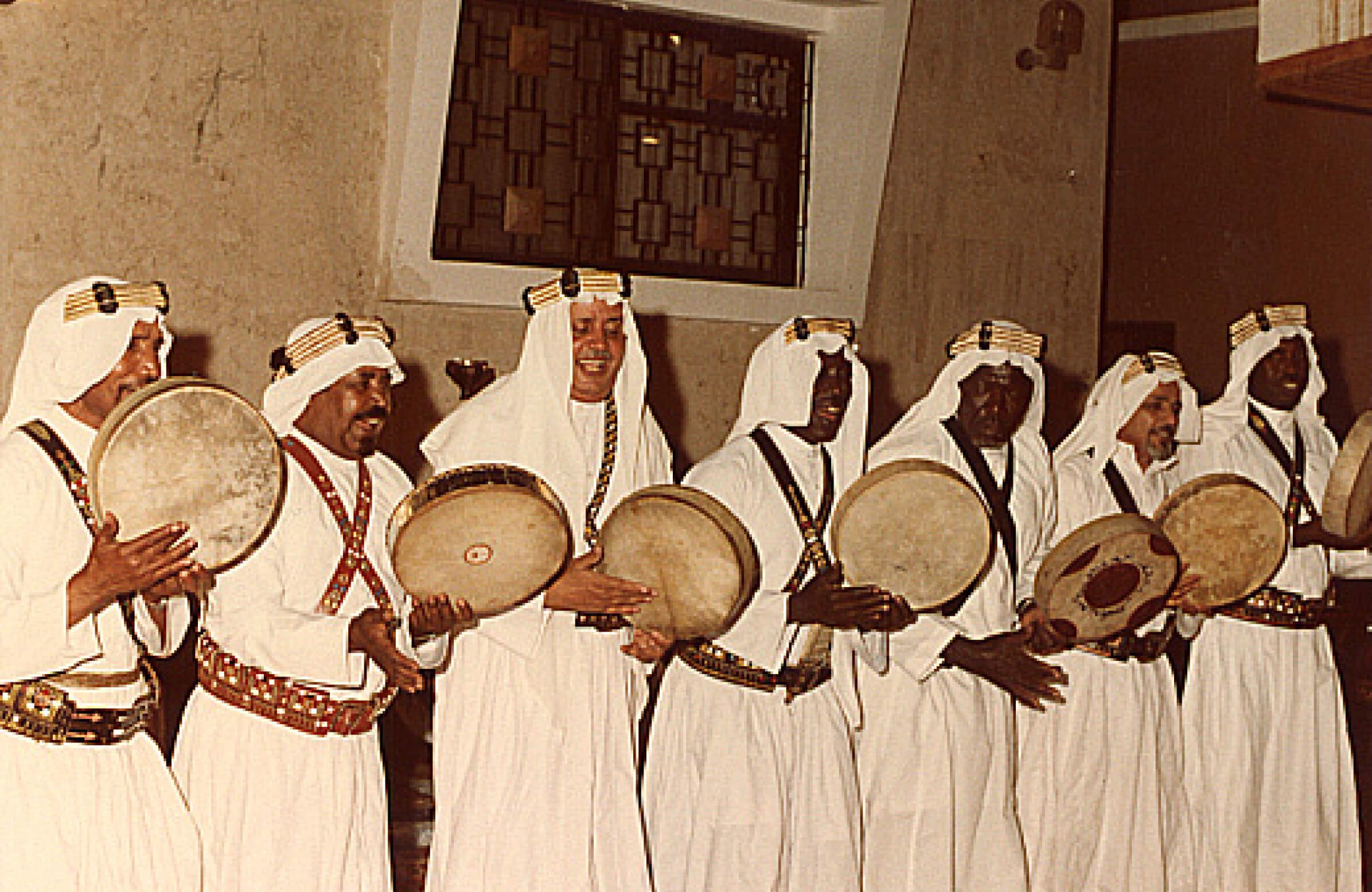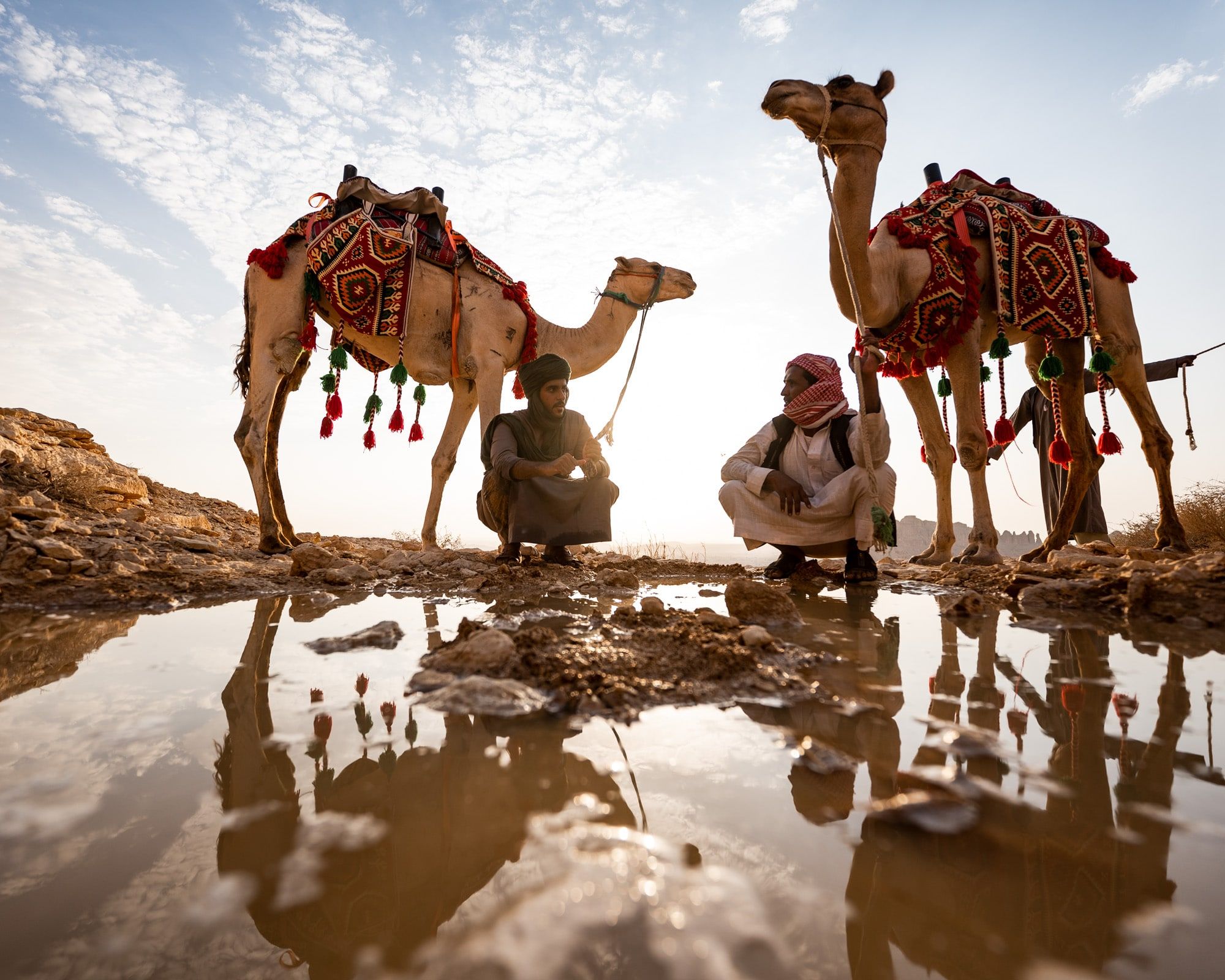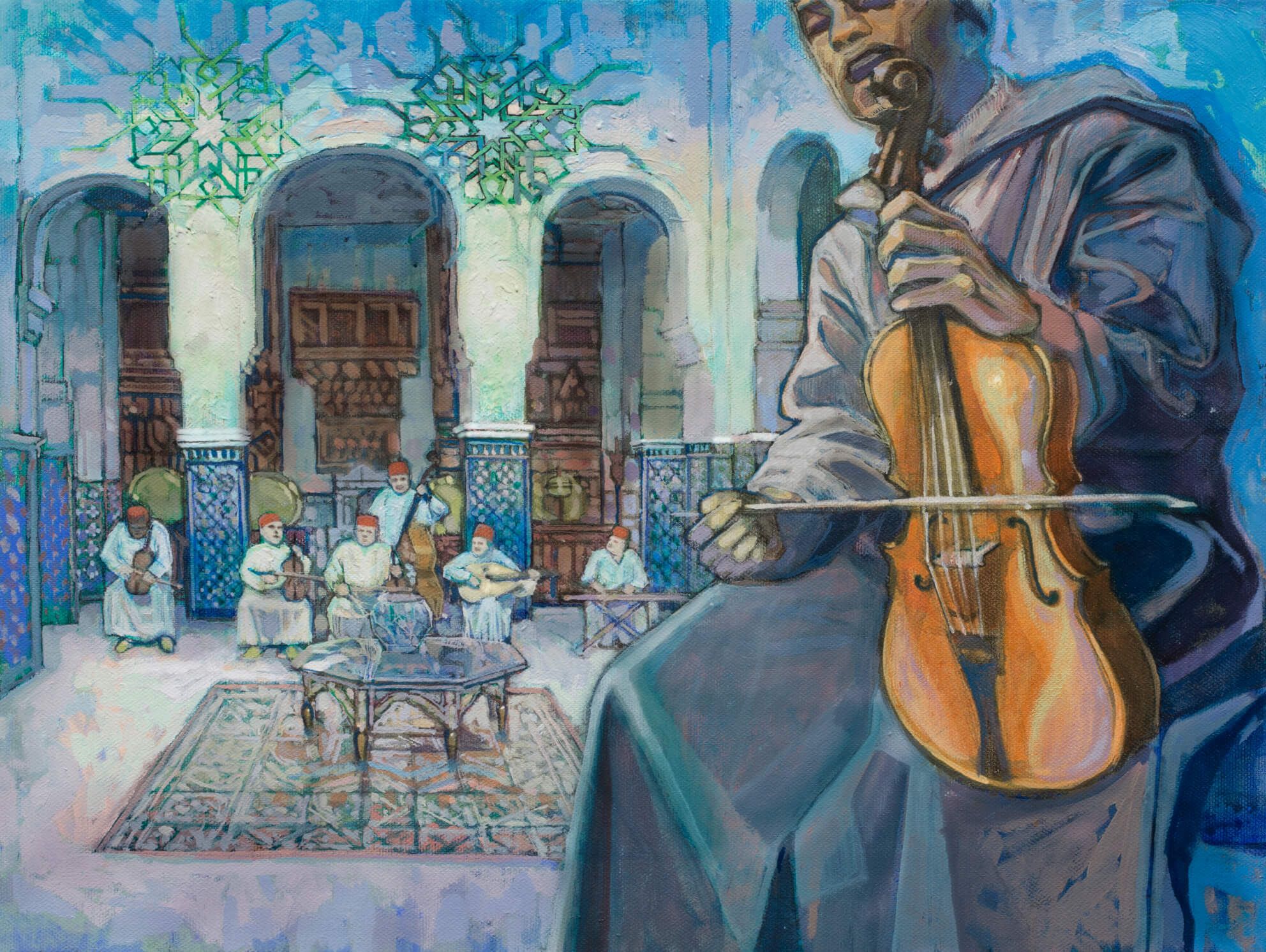Tariq Abdul Hakim - Father of music
Tariq Abdul Hakim - Sketch of the ‘Father of Saudi music’
Tariq Abdul Hakim - Saudi artist and musician
Do you know who developed Saudi’s national music, including its military march, its national anthem, all the while reviving the country’s folkloric heritage and protecting it from oblivion?
Do you know who was credited with transferring Saudi music from the stage of auditory melody to the stage of musical notes written on sound, scientific foundations?
This person was also the first to establish the Saudi Army Music Band, the Military Music Museum in Riyadh, the Public Security Institute of Music and Physical Education, the Arab Arts Association, and many other institutes, associations, and cultural groups.
They were the mind behind immortal Saudi songs such as Abki Ala Ma Jara Li Ya Hali, Lanallah, and Ya Reem Wadi Thaqif.
We are talking about Taif’s prodigal son, Tariq Abdul Hakim al-Tuwairqi (1918-2012).
He was a composer, singer, music researcher, author, and historian who collected documents and musical instruments. His name became known worldwide, as he won the UNESCO International Prize for Music in 1981, thus making him the sixth Arab to receive this award. He was credited with completing the developed musical arrangement of the Saudi national anthem. Al-Tuwairqi also held the position of President of the Arab Music Society in the League of Arab States for two consecutive terms.

The beginnings of Tariq Abdul Hakim go back to the beginnings of the second Saudi state, where he began his career in the army. Despite his lack of enthusiasm at the time for military action, it was the only entry point for him to study music, as he was sent by the Defense Minister Mansour bin Abdulaziz to study military music in Egypt in 1952. After Tariq Abdul Hakim graduated from the Arabic Music Institute in Egypt, he spent valuable time in Egypt, learning a lot from Egyptian musicians. He even met Umm Kulthum on one occasion.
He returned to his country and presented a lot of works in the field of military music. He changed the arrangement of the national anthem, formed military music bands, and established the Army Music Institute, the Museum of Military Music in Riyadh, the Institute of Public Security Music, and the Arab Society for the Arts. He was also appointed as a general supervisor of radio music.
Tariq Abdul Hakim evolved the art of the Saudi song and left an impact that cannot be surpassed. During his career, Abdul Hakim performed nearly 500 melodies, of which 104 singers from the Arab world sang, including: Hiyam Younis, Wadi’ Al Safi, Najat Al Saghira, and Sabah. He also cooperated with more than 150 poets and writers, and presented about 104 national anthems, in addition to developing and improving the Saudi royal anthem, 36 anthems about the Gulf War, 17 historical and religious operettas, 10 symphonies, and 11 musical pieces.
Tariq Abdul Hakim succeeded in establishing the Saudi song, and his beginning was from a historical breakthrough, when he composed the royal Saudi anthem, which later developed into the melody of the national anthem, which Ibrahim Khafaji composed in 1984.
Tariq Abdul Hakim was not only an author, composer and singer; but he was a musical school in and of himself, as he was like the spiritual father of the pioneering artists of the Kingdom who learned from him and were taught a lot by him,including Talal Maddah and Muhammad Abdo, who in turn became immortal names in the Saudi musical culture.
Tariq Abdul Hakim loved his culture in all its forms. Not only did he produce music, but he wrote books and studies that documents the country’s musical past and present. He wrote ten books studying the folkloric heritage of the country, including “The Most Famous Folklore with its musical rules and theories in the Kingdom of Saudi Arabia, 1980”, “Hidden Melodies in the Arabian Desert, 1971” and “Music rules and theories, 1981”.
His songs were more than just ordinary songs, as they carried important elements of the formation of the modern Saudi identity, as several generations sang his songs and melodies to this day, and his songs became immortal and exceptional for the Saudi individual.

Tariq Abdul Hakim's songs were, and still are, part of the collective sound memory in the Kingdom. Even in his last days, his last will and testament reflected his love and concern for Saudi’s musical culture “I dedicate my musical art library to my countrymen of artists and musicians, as well as those interested in the field of musical art from the people of the Arab World, and I urge my children to preserve the Arab and Islamic traditions, and to keep every good memory that I left for them, and to preserve my compositions that are part of me. For posterity, I say that art is the mirror of people, and a nation is known only by its music, and I hope that the managing of our cultural heritage and arts remain a key part of raising our youth.”
In honour of him and to perpetuate his memory and his great artistic legacy, the Ministry of Culture decided to open a museum containing the archival items and personal belongings of Tariq Abdul Hakim, including musical instruments, CDs of his recordings, photo albums, and some musical compositions by great Arab singers, such as Umm Kulthum and Abdel Wahhab.
There will also be video and audio recordings of Tariq Abdul Hakim performing his compositions with others, and his musical compositions of national anthems and others. The museum is divided into two main sections, the first of which will display the personal history of the late artist, and the second will be a music research center that includes articles and writings on Saudi music, in addition to research on the music of the Arab world. It will serve music researchers looking to expand their knowledge of ethnic and national music.
The museum is scheduled to open in the heart of Jeddah’s historic Al-Balad, to become part of the other cultural houses in the region which celebrate the heritage of the Kingdom and its diverse arts.


